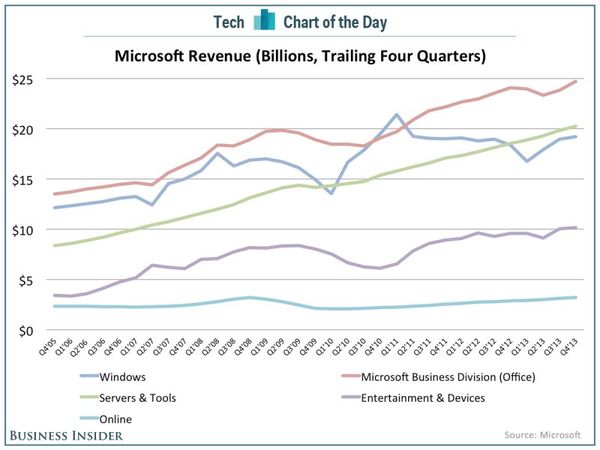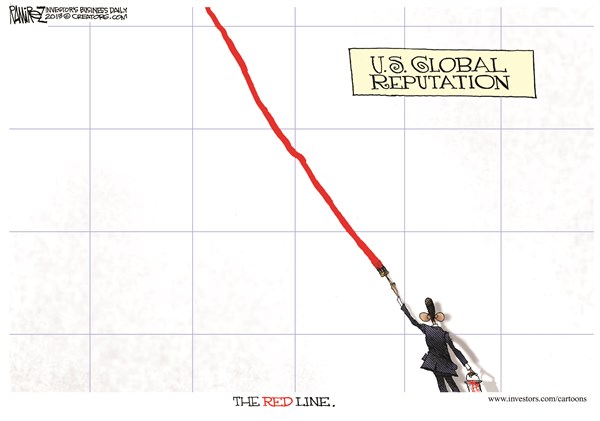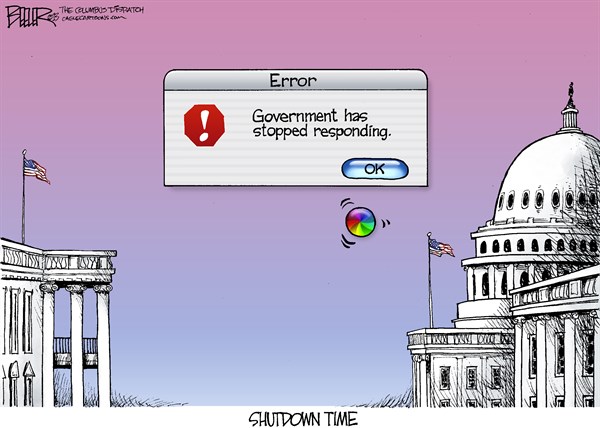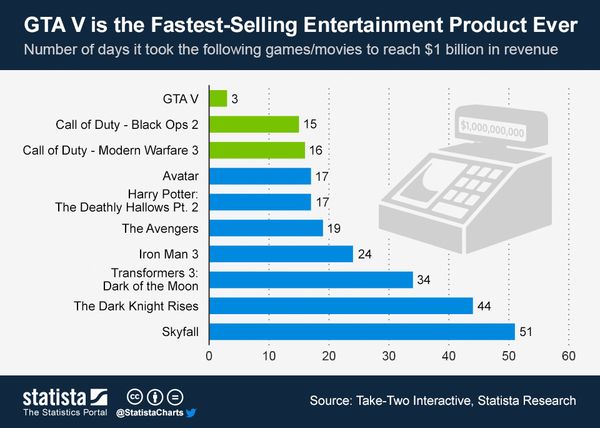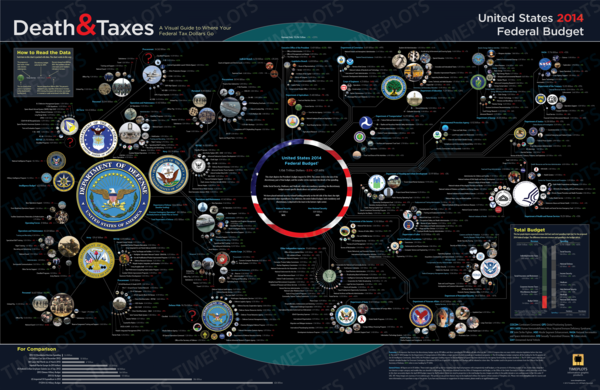Microsoft released some interesting stuff this week.
The update to Windows 8 is here.
They released an app that lets you control your desktop from your iOS or Android device.
Also, here is a chart that shows where Microsoft makes its money. For someone that doesn't pay that close attention to micro moves coming out of Redmond, the chart is somewhat surprising.
On one hand, notice that Microsoft's Windows franchise (which was once dominant) is now stagnant. On the other hand, it's easy to see that there is much more to Microsoft than just Windows.
As you can see, the Office business, and the Server & Tools business
are both bigger than Windows and growing at a healthy rate.


